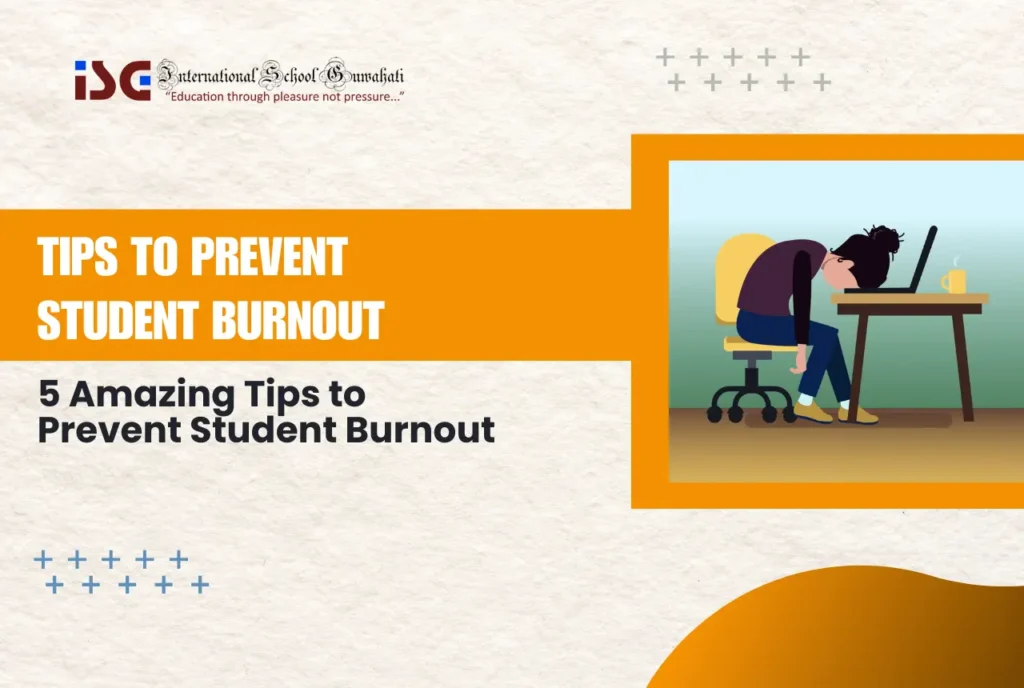Being a student is not exactly a child’s play. Academic life is intense and as we approach tests and exams, the situation intensifies even more.
The constant grind of periods in school, classwork, discipline maintenance, and homework later at home can burn students out immensely. This can affect their academic performance.
Therefore, we are here with some powerful tips to prevent student burnout.
Let’s look at what academic burnout is. It is possible to describe academic burnout as a bad emotional, physical, and mental response to a long-term study that makes a person tired, frustrated, unmotivated, and less good at school.
It’s the result of learning the same thing for weeks or months, working on the same project, or going to school full-time for years.
The first step in treating academic burnout is to admit that you have it. The next step is to make a real commitment to changing the things you do now.
It is possible to get over academic stress and keep it from happening again! We’ll show you how to do it and give you the best advice on how to stay away from stress altogether.
Here is How to Prevent Student Burnout and Stay Fresh
1. Set Realistic Goals and Create a Schedule

Most of the time, we are burned out because we try to follow a schedule that is quite unrealistic with hard-to-achieve goals. Therefore, the first step to preventing burnout is setting realistic expectations.
Students have to take a holistic approach to studies and create achievable goals aligned with their workload and individual capabilities.
This might involve breaking down large projects into smaller, more manageable tasks.
Studying different subjects, interspersed with breaks for relaxation and personal time helps a lot. Time management techniques like the Pomodoro Technique can be particularly helpful.
The Pomodoro Technique involves focusing on a specific task for 25 minutes, followed by a short break, to maintain concentration and avoid feeling overwhelmed.
2. Prioritize Sleep and Physical Activity

While burning the midnight oil might seem like a badge of honor in some academic circles, getting quality sleep is crucial for students’ success.
During sleep, the brain processes information and recharges for the day ahead. Aiming for 7-8 hours of uninterrupted sleep each night is essential for optimal cognitive function and overall well-being.
Physical activity is another powerful weapon in the fight against burnout. Regular exercise is a proven stress reliever, it improves mood and boosts energy levels.
Students don’t need to dedicate hours to strenuous workouts; even short bursts of activity, like a quick walk or a jog, can make a significant difference.
3. Establish Healthy Boundaries and Disconnect

Setting clear boundaries between study time and personal time is essential to prevent burnout. Students should designate specific time periods for focused studying and disconnect from distractions like social media during these times.
Putting phones on silent, turning off notifications, and informing friends and family about designated “focus zones” can all help minimize distractions.
Politely declining additional commitments when feeling overwhelmed is an important skill for students.
Explaining that they have a heavy workload or need time for relaxation can help avoid over-commitment, which can be a major contributor to burnout.
4. Practice Self-Care and Relaxation Techniques

Self-care is not a luxury – it’s a necessity for students juggling academic demands and personal lives. Incorporating activities that promote relaxation and manage stress is essential to prevent burnout.
Engaging in mindfulness meditation, spending time in nature, listening to calming music, or pursuing hobbies are all excellent examples of self-care practices.
There are also many online resources and campus workshops dedicated to teaching students different relaxation techniques.
5. Seek Help When Needed
Unfortunately, burnout can still affect students even after implementing these strategies. Seeking help is not a sign of weakness but a sign of strength and self-awareness.
Most campuses offer a variety of resources for students struggling with burnout, including academic advisors, counselors, and mental health professionals.
These professionals can provide personalized support, guidance, and tools to help students manage stress, navigate academic challenges, and prioritize their well-being.
Overcoming any stigma associated with seeking help is crucial. Remember, your well-being is paramount, and there is no shame in asking for support.
Bonus Tips

Powerful self-talk
Every day, tell yourself nice things and remember that you can do anything you set your mind to. Also, tell yourself that you are doing your best and putting in as much effort as you can. Take a moment to think about what you’ve done well and how far you’ve come.
List of things to do and notes
A to-do list is a great way to remember what you need to do each day. There’s no need to strain your brain to remember everything; writing it down can help. As you cross off each thing, you’ll feel a little dopamine rush and be proud of yourself.
Make a plan
Messy rooms can make you feel like things are out of control and take your attention away. Getting your main areas clean can help you feel better and calm down.
Conclusion
To prevent student burnout is a real challenge with real consequences. However, by following these five powerful tips – setting realistic goals, prioritizing sleep and physical activity, establishing healthy boundaries, practicing self-care, and seeking help when needed – students can equip themselves to thrive in their academic pursuits. Remember, a healthy and balanced lifestyle is the key to achieving academic success and overall well-being.








